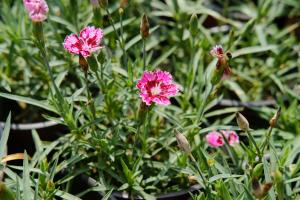How to Use Rain Water for Indoor Weed Plants
One of the greatest challenges for indoor weed growers is finding the right source of water for their plants. While tap water is often readily available, it can contain chemicals and minerals that may harm your plants. This is where rainwater can come in handy. Here is a guide on how to use rainwater for your indoor weed plants.
Collecting Rainwater
The first step is to collect rainwater. You can use rain barrels or other containers to collect rainwater from your roof or other outdoor surfaces. Before using the rainwater, make sure to filter it first to remove any debris or contaminants that may have collected on the surface from which it was collected. This can be done using a fine mesh or quick filter system.
Testing Rainwater pH Level
The pH level of your rainwater may not be suitable for your indoor weed plants. Ideally, the pH level should be between 6.0 and 6.5. You can test the pH level of your rainwater using pH strips or a pH meter. If the pH level is too high or low, you can adjust it by adding pH adjusters such as sulfur or lime to your water. Be cautious, however, and avoid adding too much, which can harm your plants instead of benefiting them.
Using Rainwater for Indoor Weed Plants
Once you have collected and filtered your rainwater and have tested and adjusted the pH level accordingly, you are ready to use it for your indoor weed plants. In general, it is best to water your plants with rainwater when the top inch of soil is dry. Avoid overwatering, as this can lead to root rot.
Keep in mind that different strains of weed will have different water needs, so it is important to monitor your plants closely and adjust your watering schedule accordingly. Additionally, rainwater may not provide all of the necessary nutrients that your plants need for optimal growth, so consider supplementing with a balanced fertilizer.
Benefits of Using Rainwater for Indoor Weed Plants
Using rainwater for your indoor weed plants can have several benefits. First, it is free and easily accessible, making it a more sustainable and cost-effective option compared to tap water. Additionally, rainwater is often naturally soft, lacking the minerals found in tap water that can accumulate over time and harm your plants. Lastly, using rainwater can reduce the need for chemical treatments and pesticides in your growing environment.
In Conclusion
Overall, using rainwater for your indoor weed plants is a great way to provide your plants with pure and natural water. By collecting and filtering the rainwater, testing and adjusting the pH level, and using it to water your plants appropriately, you can reap the benefits of this sustainable and eco-friendly water source.

 how many times do yo...
how many times do yo... how many planted tre...
how many planted tre... how many pine trees ...
how many pine trees ... how many pecan trees...
how many pecan trees... how many plants comp...
how many plants comp... how many plants can ...
how many plants can ... how many plants and ...
how many plants and ... how many pepper plan...
how many pepper plan...
































